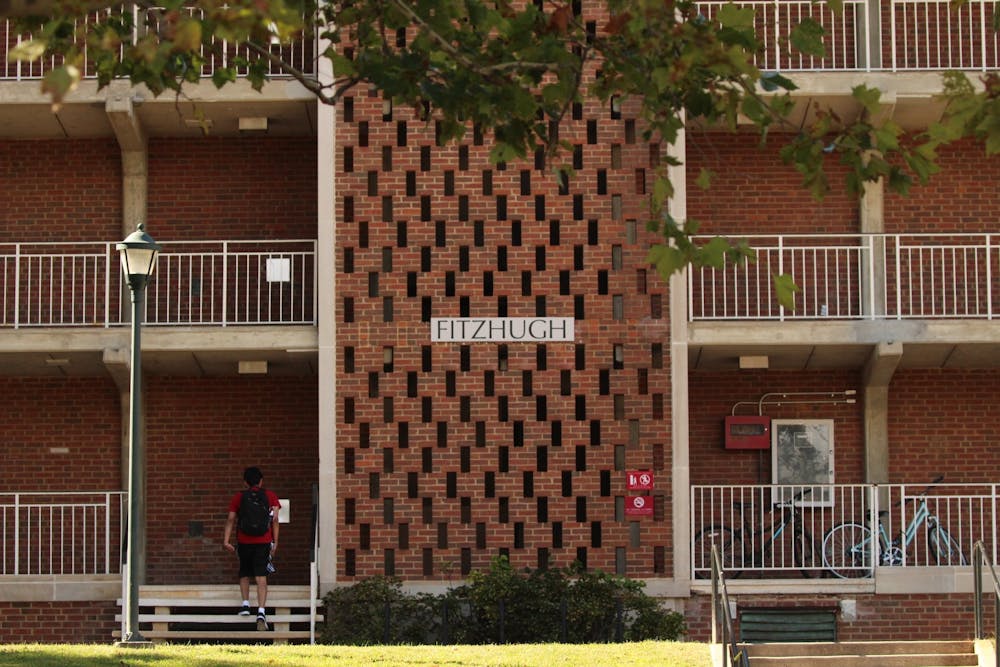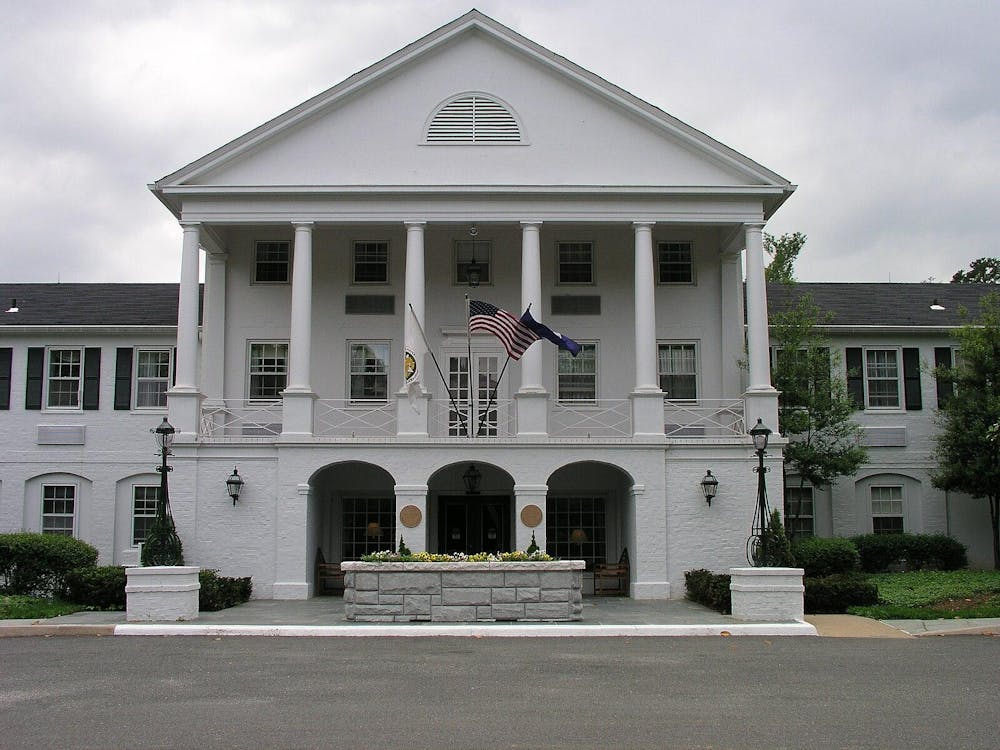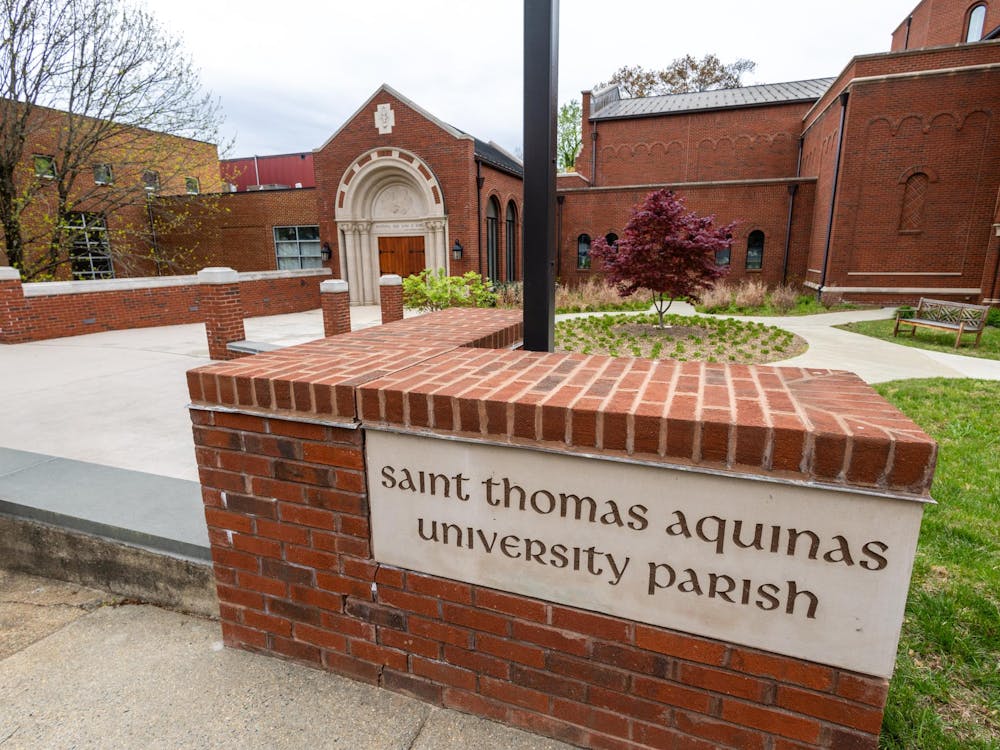Students living in dormitories such as Woody-Cauthen, Dunglison, Courtenay and Fitzhugh have experienced disruptions in their living situations after discovering deposits of mold throughout their rooms. Impacted students report symptoms associated with mold exposure and frustration with the University’s response.
Mold can cause several physical health issues similar to allergies in people who are exposed to the substance including congestion, sneezing, coughing or a sore throat.
Per University spokesperson Bethanie Glover, Housing and Residence Life is responding to new reports regarding the presence of mold or mildew in dorms. Investigations of mold are completed by HRL, Facilities Management and Environmental Health and Safety.
Glover said if mold is found in an investigation, it is removed so teams can determine the cause.
“In most cases where small amounts of mold are found, remediation involves changing resident behavior — for example, not leaving wet laundry in closets, not leaving the windows open while the air conditioning is running [or] not obstructing HVAC vents.” Glover said in an email statement to The Cavalier Daily.
Glover added that the University is not currently aware of mold-related illness trends on Grounds.
First-year College student Simone Minor first noticed what she thought was dust on the floor of her Cauthen dorm after her AC unit broke, which caused increased humidity. Once her resident advisor identified the substance as mold instead of dust, Minor contacted Facilities Management and Environmental Health and Safety about the issue. Even after Facilities Management cleaned the room, Minor said she and her roommate continued to find more mold.
While Minor expressed appreciation for the maintenance workers who helped, she said she would have liked a more comprehensive response to the mold deposits, noting that maintenance only spot-cleaned the room without looking for additional mold-impacted areas.
“I think that if it had been looked at all over from a well-rounded perspective the issue could have been solved way sooner and we wouldn't necessarily have had to have made so many complaints,” Minor said.
Minor said she had some symptoms associated with mold exposure, including an itchy throat and sinus congestion. These reactions became so bad that Minor elected to stay with a friend instead of in her room.
“I think it's really hard because the symptoms of allergies, the symptoms of the flu and a lot of these things are very similar [to symptoms of mold exposure].” Minor said. “Luckily, it went away with me removing myself from the room, which hinted to me that clearly, the room was causing more issues for me.”
Not long after moving into his dorm in Cauthen, first-year Engineering School student Austin Tran began to experience intense chest pain. Tran’s symptoms escalated to the point of hospitalization, where he tested negative for COVID-19, influenza and heart complications.
A few days later, his RA informed him that there was a mold issue in Cauthen and his room had likely been infected. Like Minor, maintenance came after Tran filed a formal maintenance order, but did not report how deep or thorough their clean was.
Tran said he continues to worry about the state of his living space, especially given the consistent building issues he has seen within Cauthen.
“I was told that you’re just gonna pay this fee, and you’re just gonna get somewhere to sleep,” Tran said, “That’s the bare minimum … I’m paying the same [housing cost] as a lot of other people, and in terms of quality, it doesn’t quite feel like that.”
First-year College student Luka Ivanovic echoed Tran’s frustration. Ivanovic’s dorm, as well as many others in Courtenay, recently suffered mold infections.
“Some people’s [mold] was within their air conditioning units, some people’s was on or under the mattress,” Ivanovic said. “Some was inside doors, drawers and wardrobes … some were quite severe.”
Ivanovic, still struggling with undiagnosed respiratory issues, expressed disappointment about HRL’s response to the issue as well as general housing disparities on Grounds.
“We want somebody to come explain to us how this all happened, the way it spread, how it got to this point and what exactly they’re going to do to ensure that it’s not going to happen again,” Ivanovic said. “It’s pretty unacceptable, considering the amount we’re paying is the same as every other first year for room and board.”
An anonymous resident advisor who works in an impacted dorm said they feel frustrated with HRL’s response to the mold. The RA, who has experienced severe symptoms consistent with mold exposure, said they feel ignored.
“I shouldn't be having to do HRLs job because they can't keep up,” the resident advisor said. “Even after I was sick and skipping out on academics, I'm still having to take time away from academics to deal with HRLs problems. Dealing with mold is not my job description.”







